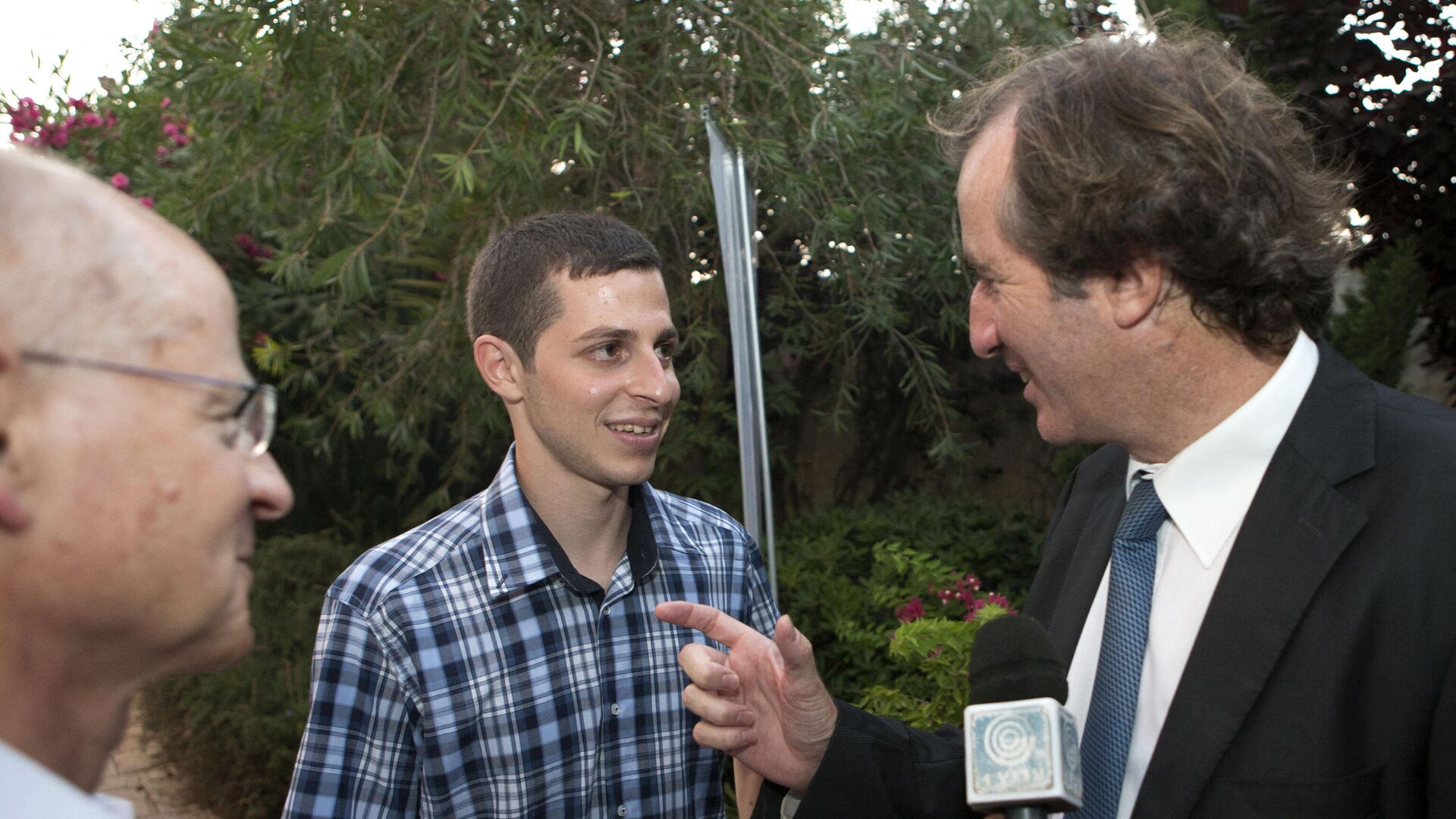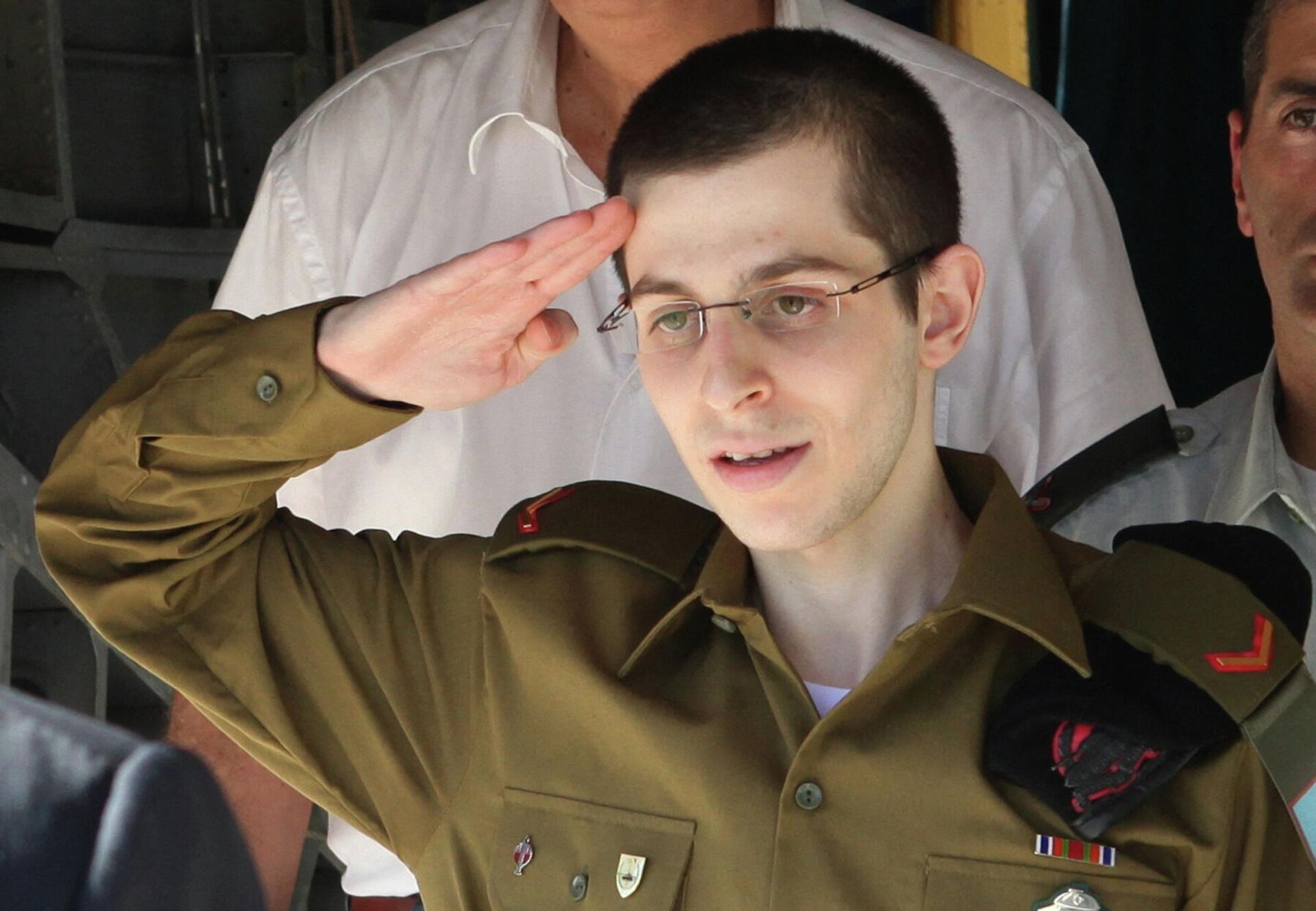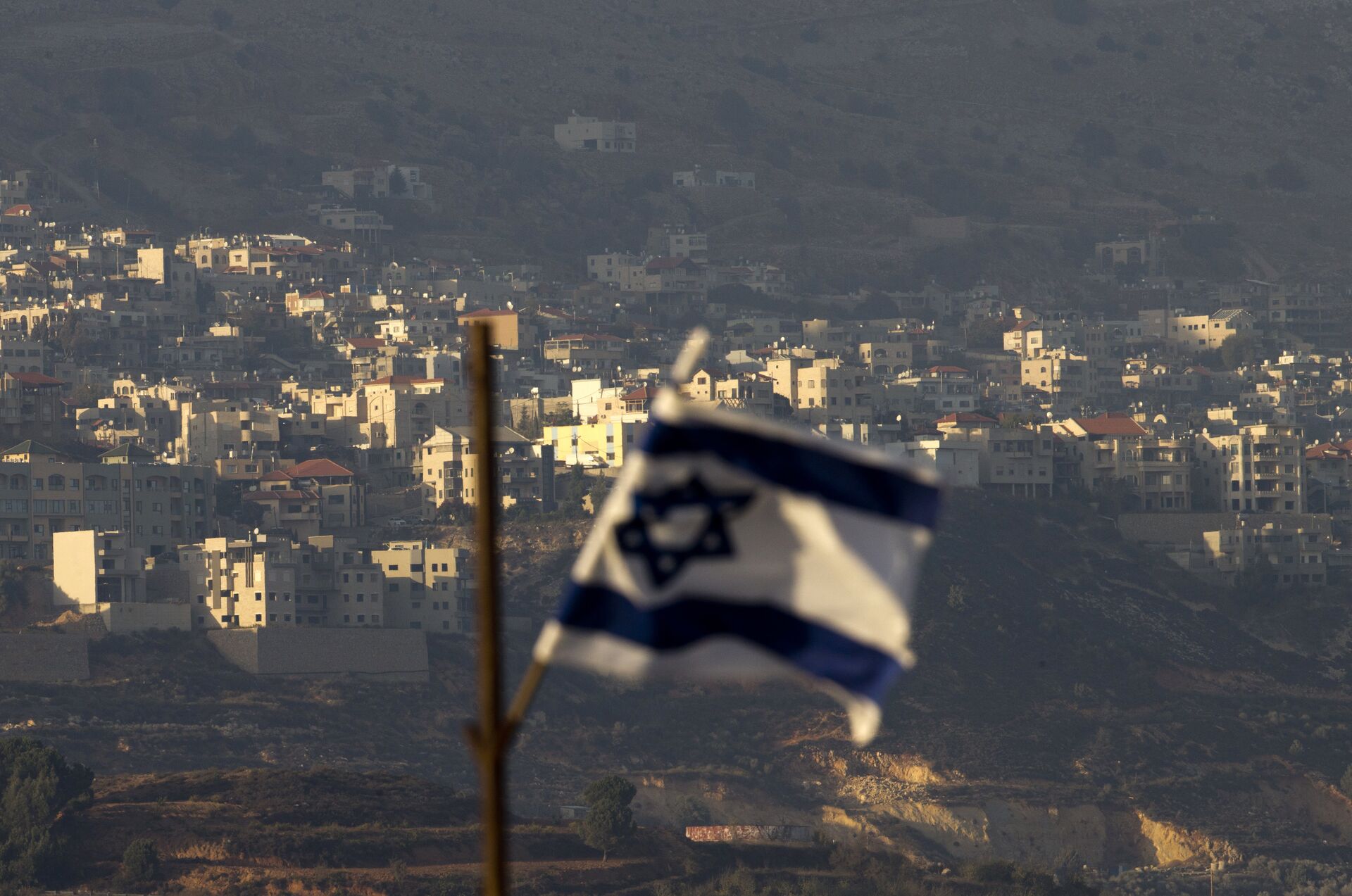https://sputnikglobe.com/20211018/ten-years-after-shalits-release-chief-campaigner-talks-about-battle-to-bring-idf-soldier-back-home-1089998066.html
Ten Years After Shalit's Release, Chief Campaigner Talks About Battle to Bring IDF Soldier Back Home
Ten Years After Shalit's Release, Chief Campaigner Talks About Battle to Bring IDF Soldier Back Home
Sputnik International
Gilad Shalit, a former Israeli soldier, spent five years in a Hamas prison. During his time in captivity, thousands rallied to free him, with Tel Aviv... 18.10.2021, Sputnik International
2021-10-18T08:51+0000
2021-10-18T08:51+0000
2021-10-18T08:51+0000
israel
idf
https://cdn1.img.sputnikglobe.com/img/07e5/0a/11/1089980292_0:0:3073:1728_1920x0_80_0_0_16628d7ca4f857b02bcca560d8c00088.jpg
On 25 June 2006, Shimshon Libman, an Israeli entrepreneur and activist from Mitzpe Hila – in the north of the country – was in his car when he heard a news bulletin announcing that Hamas, an Islamic group that controls the Gaza Strip, had kidnapped IDF soldier Gilad Shalit.Natural DecisionThe Shalit family also resided in Mitzpe Hila, but Libman had never met them. That, however, didn't prevent him from turning his car around and making his way to extend a helping hand.For Libman, it was a "natural decision". He was brought up on the values of voluntarism, contribution to society, and helping others.Libman has lived on a kibbutz, a collective community in Israel, for more than two decades. Over the years, he has been a principal and the chairman of a local club helping at-risk children. And this is why assisting the Shalits was an obvious move.Initially, it was only Gilad Shalit's father, Noam, Libman, and one other person who joined forces to put pressure on the government to free the IDF soldier. But as time went by, they garnered thousands of people to rally to their cause. Campaigning For His ReleaseLibman became the head of the campaign to free Gilad Shalit. Together with others he engaged PR firms and advertising agencies, who worked on a voluntary basis, and came up with a number of initiatives aimed at raising public awareness about Shalit and to the need to bring him back home.Then, after Libman realised that there was no other choice, he told Noam that the campaign should take a different direction.Hamas had earlier demanded that Israel release more than a thousand Palestinian prisoners held in jails on terrorism charges. Shalit's chief campaigner was eager to go ahead with the deal if it meant Gilad's liberation.Dividing Public OpinionBut many others were not ready to see the release of Palestinian prisoners in exchange for one Israeli soldier. Thousands rallied against the potential deal and called on the authorities not to give in to pressure.Libman says he understood their pain. "It is a story of pain against pain. We had bereaved families that supported our struggle and wanted to see Gilad released. Others rejected this idea. We respected their feelings but we also needed to show them that we believed in our path".That belief kept Libman going despite the hatred directed at his movement and in spite of the constant failures in negotiations with Hamas.On 18 October 2011, it finally happened. Shalit was first interviewed by leading Egyptian journalist Shahira Amin at the Rafah crossing connecting Egypt to the Gaza Strip before he was taken to see his family.Recalling that moment, Libman says that activists rushed to the car when Gilad arrived at his house. But the chief campaigner stood aside. For him, it wasn't the battle over Shalit as a soldier. For him, it was a struggle of values, and that path had come to an end.Libman didn't use the success of that campaign to score political points. Neither did he use it to become a politician. Ten years after Shalit's release, Libman continues to run his business. He gives lectures about that battle to bring the IDF soldier home, and he's penning a book about that struggle – the struggle over values.
israel
Sputnik International
feedback@sputniknews.com
+74956456601
MIA „Rosiya Segodnya“
2021
News
en_EN
Sputnik International
feedback@sputniknews.com
+74956456601
MIA „Rosiya Segodnya“
Sputnik International
feedback@sputniknews.com
+74956456601
MIA „Rosiya Segodnya“
israel, idf
Ten Years After Shalit's Release, Chief Campaigner Talks About Battle to Bring IDF Soldier Back Home
Gilad Shalit, a former Israeli soldier, spent five years in a Hamas prison. During his time in captivity, thousands rallied to free him, with Tel Aviv eventually having to release over a thousand Palestinian prisoners charged with terrorism to secure his freedom, dividing the Israeli public over the matter.
On 25 June 2006, Shimshon Libman, an Israeli entrepreneur and activist from Mitzpe Hila – in the north of the country – was in his car when he heard a news bulletin announcing that Hamas, an Islamic group that controls the Gaza Strip, had kidnapped IDF soldier Gilad Shalit.
The Shalit family also resided in Mitzpe Hila, but Libman had never met them. That, however, didn't prevent him from turning his car around and making his way to extend a helping hand.
"I called the secretary of the community and asked for their address. I then showed up, knocked on their door and told them: 'Hi, I am with you'".
For Libman, it was a "natural decision". He was brought up on the values of voluntarism, contribution to society, and helping others.
Libman has lived on a kibbutz, a collective community in Israel, for more than two decades. Over the years, he has been a principal and the chairman of a local club helping at-risk children. And this is why assisting the Shalits was an obvious move.
"It is part of our Jewish tradition and of our Israeli narrative. We believe that we don't leave our soldiers behind. No matter what. This is what makes us different from many other countries".
Initially, it was only Gilad Shalit's father, Noam, Libman, and one other person who joined forces to put pressure on the government to free the IDF soldier. But as time went by, they garnered thousands of people to rally to their cause.
Campaigning For His Release
Libman became the head of the campaign to free Gilad Shalit. Together with others he engaged PR firms and advertising agencies, who worked on a voluntary basis, and came up with a number of initiatives aimed at raising public awareness about Shalit and to the need to bring him back home.
"For the first three years, we staged demonstrations, we blocked the Erez crossing [that connects Israel to the Gaza Strip - ed.], and we applied pressure to prevent family visits for Palestinian prisoners. But we didn't think of a deal with Hamas".
Then, after Libman realised that there was no other choice, he told Noam that the campaign should take a different direction.
Hamas had earlier demanded that Israel release more than a thousand Palestinian prisoners held in jails on terrorism charges. Shalit's chief campaigner was eager to go ahead with the deal if it meant Gilad's liberation.
"We led an almost Gandhi-like, non-violent campaign. We didn't anger the masses. Neither did we close down roads and streets. We didn't let the left and the right camps in Israel take over our discourse. And this is why we received so much support. Many families mentioned his name during their Shabbat dinner. Many had an empty chair in his honour".
But many others were not ready to see the release of Palestinian prisoners in exchange for one Israeli soldier.
Thousands rallied against the potential deal and called on the authorities not to give in to pressure.
Libman says he understood their pain. "It is a story of pain against pain. We had bereaved families that supported our struggle and wanted to see Gilad released. Others rejected this idea. We respected their feelings but we also needed to show them that we believed in our path".
That belief kept Libman going despite the hatred directed at his movement and in spite of the constant failures in negotiations with Hamas.
"I always told activists that we don't have the luxury to give up. I always believed that one day he would be set free".
On 18 October 2011, it finally happened. Shalit was first
interviewed by leading Egyptian journalist Shahira Amin at the Rafah crossing connecting Egypt to the Gaza Strip before he was taken to see his family.
Recalling that moment, Libman says that activists rushed to the car when Gilad arrived at his house. But the chief campaigner stood aside. For him, it wasn't the battle over Shalit as a soldier. For him, it was a struggle of values, and that path had come to an end.
"I took the activists to a club and told them a very hard sentence: it is over. It was a balloon full of air and it eventually ran out. Everyone needed to go to their place now".
Libman didn't use the success of that campaign to score political points. Neither did he use it to become a politician. Ten years after Shalit's release, Libman continues to run his business. He gives lectures about that battle to bring the IDF soldier home, and he's penning a book about that struggle – the struggle over values.





